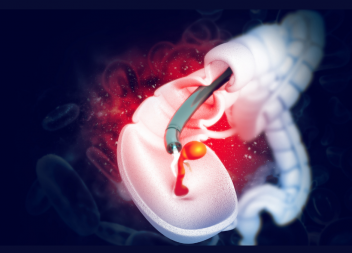A woman who was left permanently injured after delayed diagnosis of necrotising fasciitis, aka flesh-eating infection, was awarded £550,000 in compensation.
Multiple medics at the defendant trust failed to consider the vulnerable woman had a serious skin infection, despite her having oozing wounds on her leg.
Due to the delay in diagnosis, she required more extensive treatment including a stay in intensive care and multiple skin grafts. Following her injuries, she experienced repeated leg ulcers, chronic neuropathy, and a reduction in mobility.
She sought the help of medical negligence expert, Sarah Johnson of Medical Solicitors, to make a medical negligence claim.
Case summary
The claimant, a woman in her 40s, went to A&E with a painful and inflamed leg. She was morbidly obese and had previously had cellulitis three years earlier.
At hospital, she was told this was not an appropriate matter for A&E and instead was sent to the urgent care centre via wheelchair with the assistance of a porter.
At the UCC, her pain score was recorded as 9/10. But as her other observations were relatively okay, such as her temperature, blood pressure and oxygen levels, she was given an Early Warning Score (EWS) of 1 and deemed not at risk of harm.
She was admitted to the emergency ambulatory care unit. Here, she had a scan on her lower leg which ruled out DVT. She was then admitted to a short stay unit for IV antibiotics and pain relief for suspected cellulitis. A swab was taken from an oozing wound on her calf.
On the ward, C was reviewed by multiple doctors over the next few days, including a gastroenterologist and a GP. Her EWS rose to 3 and pain fluctuated between 7 and 10.
While on the ward, the ulcerated area on the leg was noted, but recorded no evidence of compartment syndrome. In her notes, it was recorded that ‘cellulitis improving and patient beginning to feel better.’ Necrotising fasciitis was not considered.
However, the following morning, C’s CRP test results, which checks for inflammation in the body, jumped to 339.8. Anything over 100 indicates severe inflammation. A diagnosis of cellulitis was still presumed, and C had an orthopaedic review that night which noted cellulitis and blisters.
The next day, C’s observations continued to worsen. She became increasingly drowsy, but this was noted as an effect of morphine. She also developed an acute kidney infection. The redness in her leg had also spread to her groin. She required intensive care for her breathing.
Later that afternoon, it was noted that the cellulitis had progressed to C’s knee and thigh. Skin below the knee had begun to breakdown and there was also a duskiness below the skin layers – a warning sign of necrosis. The blisters and cellulitis were not responding to either penicillin or flucloxacillin.
At this point, the swab results taken three days earlier were assessed. They showed evidence of both staph aureus and strep dysgal bacterium.
The following day, C went into theatre for a debridement procedure to clean the wound and remove dead tissue. The smell was noted as being typically that of necrotising fasciitis. However, no samples were taken to formally diagnose it.
After the operation, C required inotropes, dialysis and intubation for three days. She was discharged from intensive care a week later but, having developed septic encephalopathy, she remained in hospital for a further two weeks.
Six weeks later, she required another debridement procedure and a skin graft, which was done at another NHS trust. The following week she underwent a further split skin graft. The wound failed to heal properly over the course of the next 12 months.
Litigation
C alleged that there was a negligent failure by multiple members of staff to consider necrotising fasciitis, consider the swab results, and investigate the most appropriate and aggressive treatment to clear the infection.
She also alleged that she should have had the debridement procedure two or three days earlier. As a result of the delay to diagnosis and treatment, a larger area of skin needed removing, resulting in the need for skin grafting and issues impacting the healing process.
The defendant NHS trust completely denied liability and causation.
Despite this, they made a substantial offer of £550,000 which was accepted by the claimant in September 2022. An estimated breakdown of costs included £110,000 general damages for her pain and suffering and £440,000 special damages for past and future financial losses.













